![]()
|
John
Steventon & Sons Ltd |
Location and period of operation:
|
John
Steventon & Sons Ltd |
Burslem Middlewich |
1923 1936 |
1936 late 1960s |
|
Earthenware manufacturer at the Royal Pottery, Burslem, Stoke-on-Trent, England
|
Formerly: Brown & Steventon Ltd
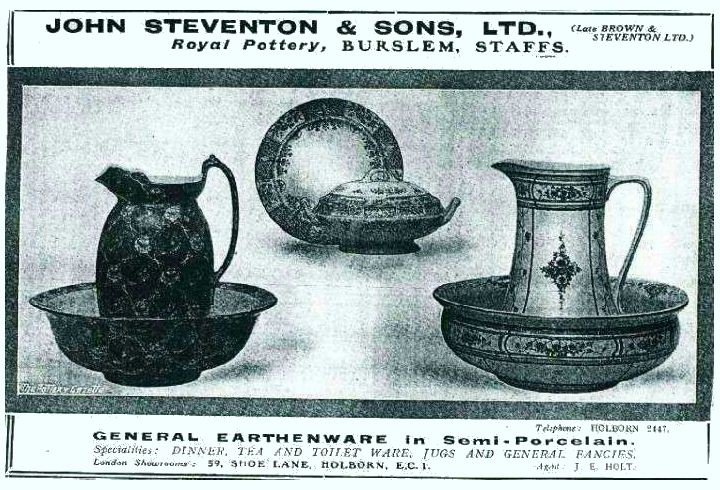
John Steventon & Sons, Ltd.
Royal Potter, Burslem, Staffs
(Late Brown & Steventon Ltd)
General Earthenware in Semi-Porcelain
The
Pottery Gazette & Glass Trade Review
1923
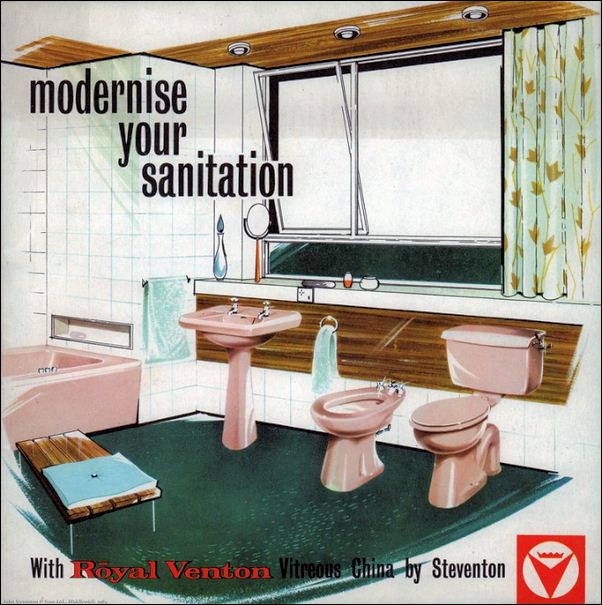
Royal Venton Vitreous China by
Steventon
| Cover of a 1963 advertising
booklet from John Steventon & Sons Ltd., Cledford Works, Middlewich, Cheshire.
Picture courtesy: Clive Hurst |
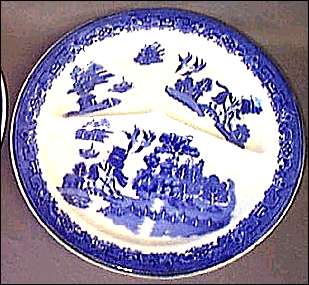
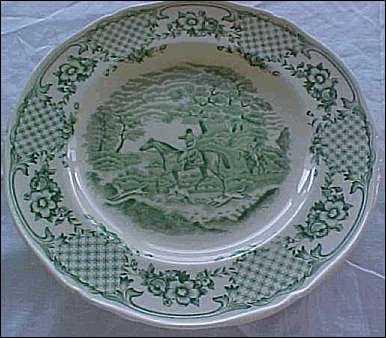
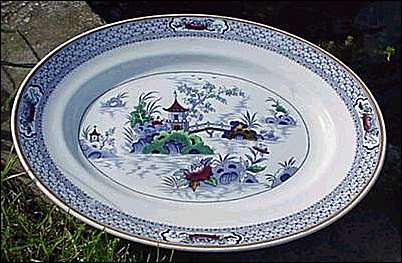
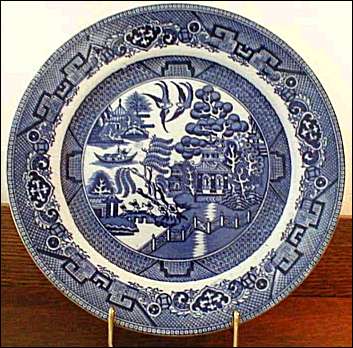
Steventon
& Sons produced large amounts of everyday
transferware in typical patterns
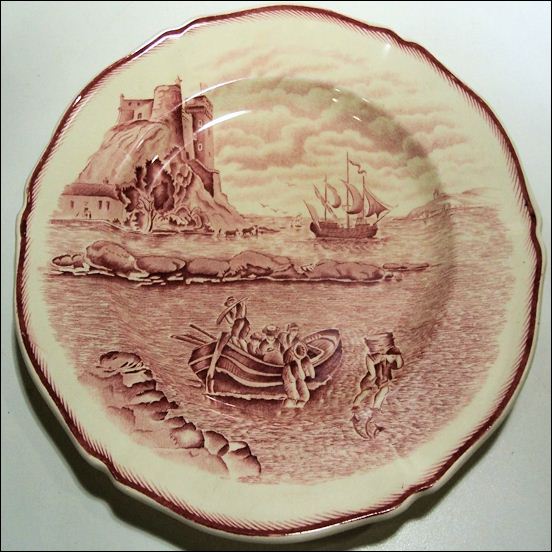 transferware plate in the Galleon pattern |
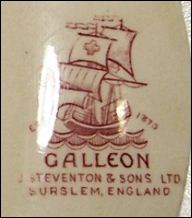 J Steventon & Sons Ltd Burslem, England |
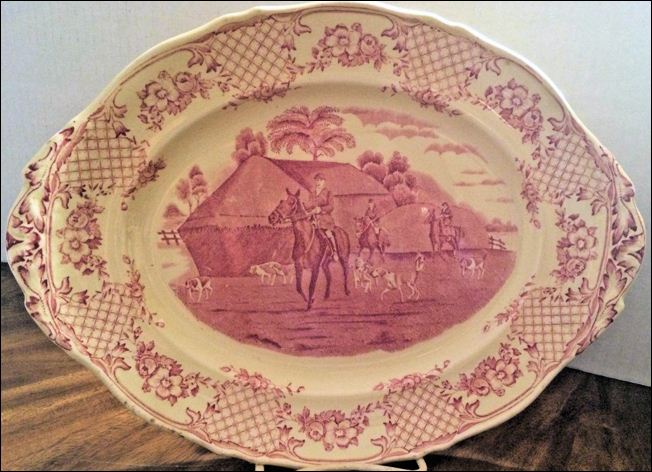 transferware serving platter showing a hunting scene |
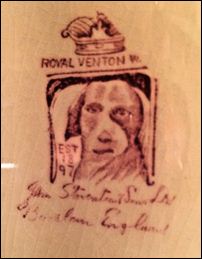 Royal Venton Ware Est 1897 John Steventon & Sons Ltd Burslem, England the 'est 1897' refers to the previous company of Brown & Steventon Ltd. |
specific marks were used on some series ware such as the Galleon and hound shown above
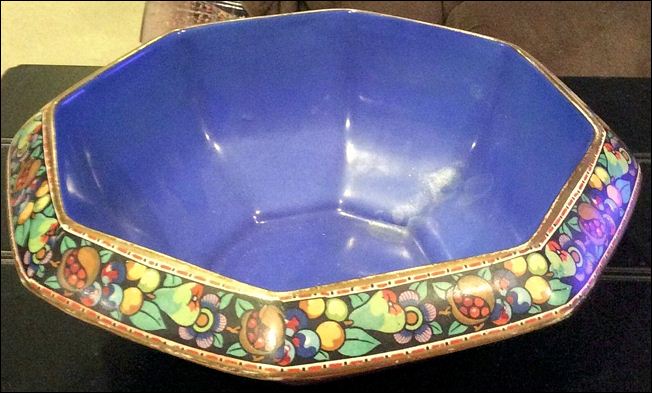 |
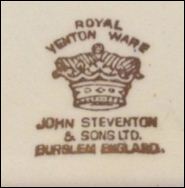 |
Harold Holdcroft
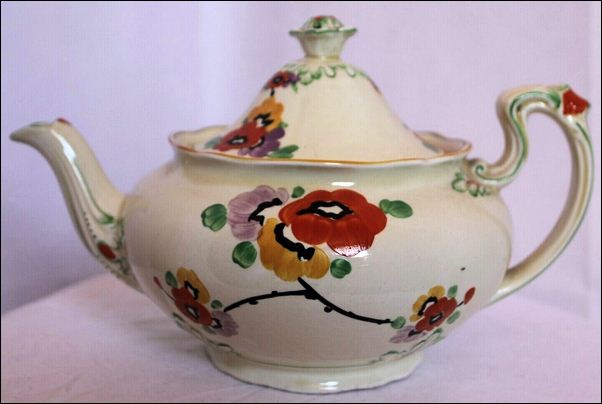 |
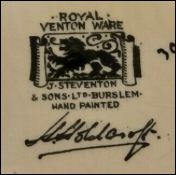 Royal Venton Ware J. Steventon & Sons. Ltd. Burslem Hand Painted Harold Holdcroft
|
|
Harold Holdcroft (1904-1982) was a student at the Burslem School of Art from 1918 until 1920 then as a teacher. Eventually, by 1928, becoming Head Designer at the school. He moved to Steventon's from 1929 where he stayed until around 1934 - his designs contained many bold and innovative designs of dinner and table ware, vases and elephant novelty ware. Harold Holdcroft is particularly known for his subsequent years as Art Director at Royal Albert Bone China Works and for designing the world famous pattern “Old Country Roses” |
|
 Hand Painted trinket/bon-bon dish with gilt outlining pattern: 2254 |
 Royal Venton Ware J Steventon & Sons Burslem Hand Painted Harold Holdcroft |
photos courtesy: Janet Whittington
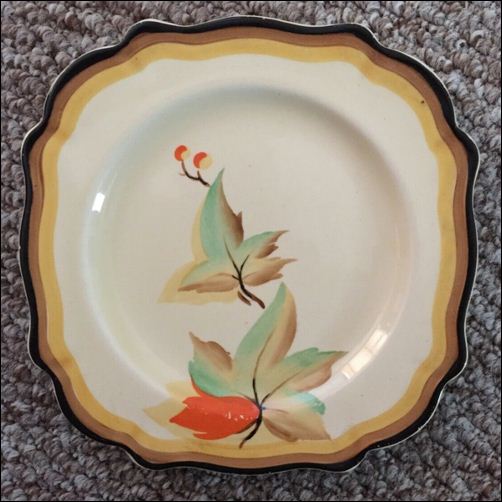 |
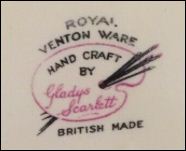 Royal Venton Ware Hand Craft by Gladys Scarlett British Made
|
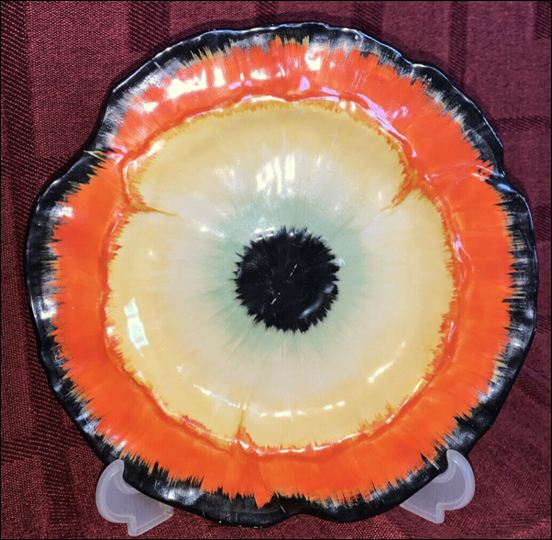 |
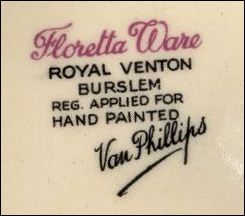 Floretta Ware Royal Venton Burslem Hand Painted Van Phillips Francis Van Phillips was previously a co-worker with Gladys Scarlett at the painting studio of Clarice Cliff. |
|
Pottery Gazette - January 1, 1932 "In this present notice it is our desire to call special attention to a new range of table ware which has been produced by John Steventon & Sons Ltd, known as "Floretta" ware. This is a very attractive new line which has obviously entailed great expense in the modelling, since the whole appeal of the ware lies in the fact that it is a combination of art modelling and hand painting in naturalistic pastel shades. The final effect is greatly enhanced by the employment of a remarkably brilliant glaze. The new "Florretta" ware which is available in a long list of table articles, is certainly deserving of the special notice of trade buyers who will learn with interest that this is the particular pattern which has specially appealed on two recent occasions to Queen Mary, and thereby resulted in Royal purchases." |
|
Marks used on ware for identification:
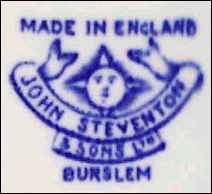 Made in England J. Steventon & Sons Ltd Burslem early marks were a continuation of the
style of the earlier |
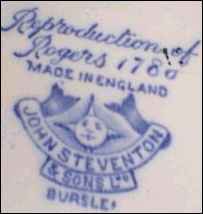 Reproduction of Rogers 1786 The original was produced by John Rogers & Son c.1814-36, and is known as "Rogers Elephant." |
marks used 1923 - c.1931
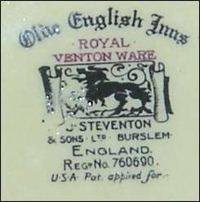 Royal Venton Ware J Steventon & Sons Ltd Burslem England the registration number 760690 shows the name was registered in 1931 |
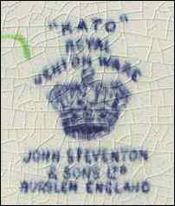 Royal Venton Ware John Steventon & Sons Ltd Burslem England
|
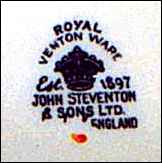 Royal Venton Ware Est 1897 John Steventon & Sons Ltd Burslem England the 'est 1897' refers to the previous company of Brown & Steventon Ltd. |
marks used 1931 - c.1936
 Royal Venton Ware Hand Craft by Gladys Scarlett British Made |
 Floretta Ware Royal Venton Burslem Hand Painted Van Phillips |
 Royal Venton Ware J. Steventon & Sons. Ltd. Burslem Hand Painted Harold Holdcroft |
marks used 1931-c.1936
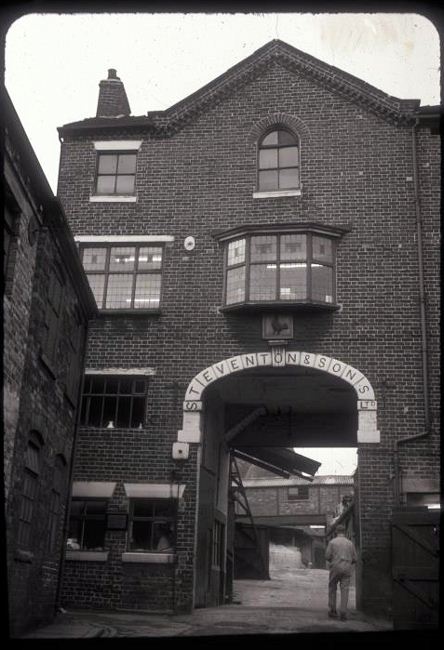 |
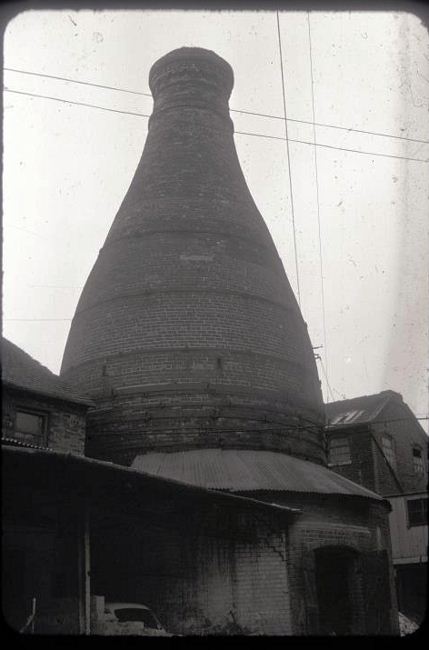 |
|
The entrance to Steventon & Sons Royal Pottery works at the end of Steventon Place, off Market Place in Burslem. John Steventon (formerly Brown and Steventon) started in 1897 and latterly made Royal Venton table ware. From the mid 1930s the company specialised in tiles and sanitary ware. |
The outside of a biscuit bottle oven at the Royal Pottery. The entrance (or wicket) to the oven is through the corrugated iron roofed porch. |
Bert Bentley Collection - December 1963
courtesy: Staffordshire Past Track
Questions, comments, contributions? email: Steve Birks